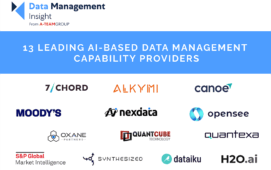RBC Dexia Investor Services said today that 26 per cent of financial institutions worldwide have little or no awareness of the Foreign Account Tax Compliance Act (FATCA)—despite the fact that the Act was passed in 2010, according to a survey conducted by the company.
FATCA is the cornerstone of US tax legislation relating to foreign accounts held by US citizens. The intent of FATCA is to capture all potential tax revenue that is payable on the worldwide income of US persons.
Jean-Michel Loehr, Chief, Industry and Government Relations, RBC Dexia Investor Services noted: “The message from this report is with all the FATCA rules and regulations yet to be finalized – including any granted exemptions – financial institutions can only take a measured approach to preparation. The good news is that awareness is gaining traction; the bad news is that the market needs much more clarification before any program can truly be finalized.”
The survey noted that European financial institutions appear to be paying much closer attention with 86% of respondents confirming strong levels of FATCA awareness. Larger organizations also see this as an area of focus as 81 per cent of respondents with over USD 1 billion in assets rated some or significant awareness.
Despite a lack of clarity about the full scope and impact of FATCA, survey participants who are aware of FATCA are getting ready for its eventual implementation. A majority, 54 per cent of respondents, classed themselves as moderately to very prepared, while 36 per cent considered themselves moderately prepared. Meanwhile, 21 per cent of overall respondents admitted they were not prepared at all.
Early projections from survey respondents reveal that 85 per cent put the cost of implementing FATCA at USD 1 million or less, with the majority (54 per cent) expecting a bargain expenditure of less than USD 100 thousand. Only 5 per cent of respondents are anticipating expenses over USD 5 million. There were no significant response variations based on region or size of organization.
RBC Dexia’s FATCA program was established in 2010 and is led by a cross functional program steering committee. RBC Dexia will continue to track FATCA readiness globally, assess the guidelines as they become available from the United States IRS and Treasury, and develop a series of resources to help clients manage for its implementation.
Subscribe to our newsletter




